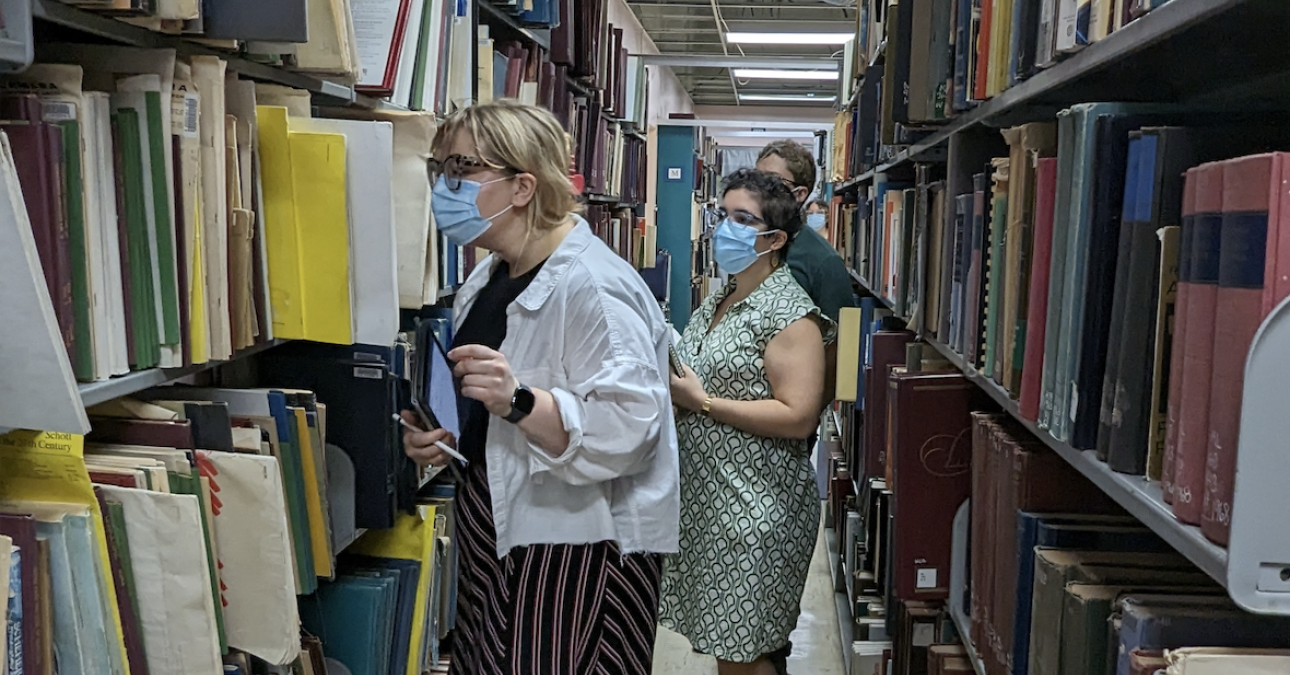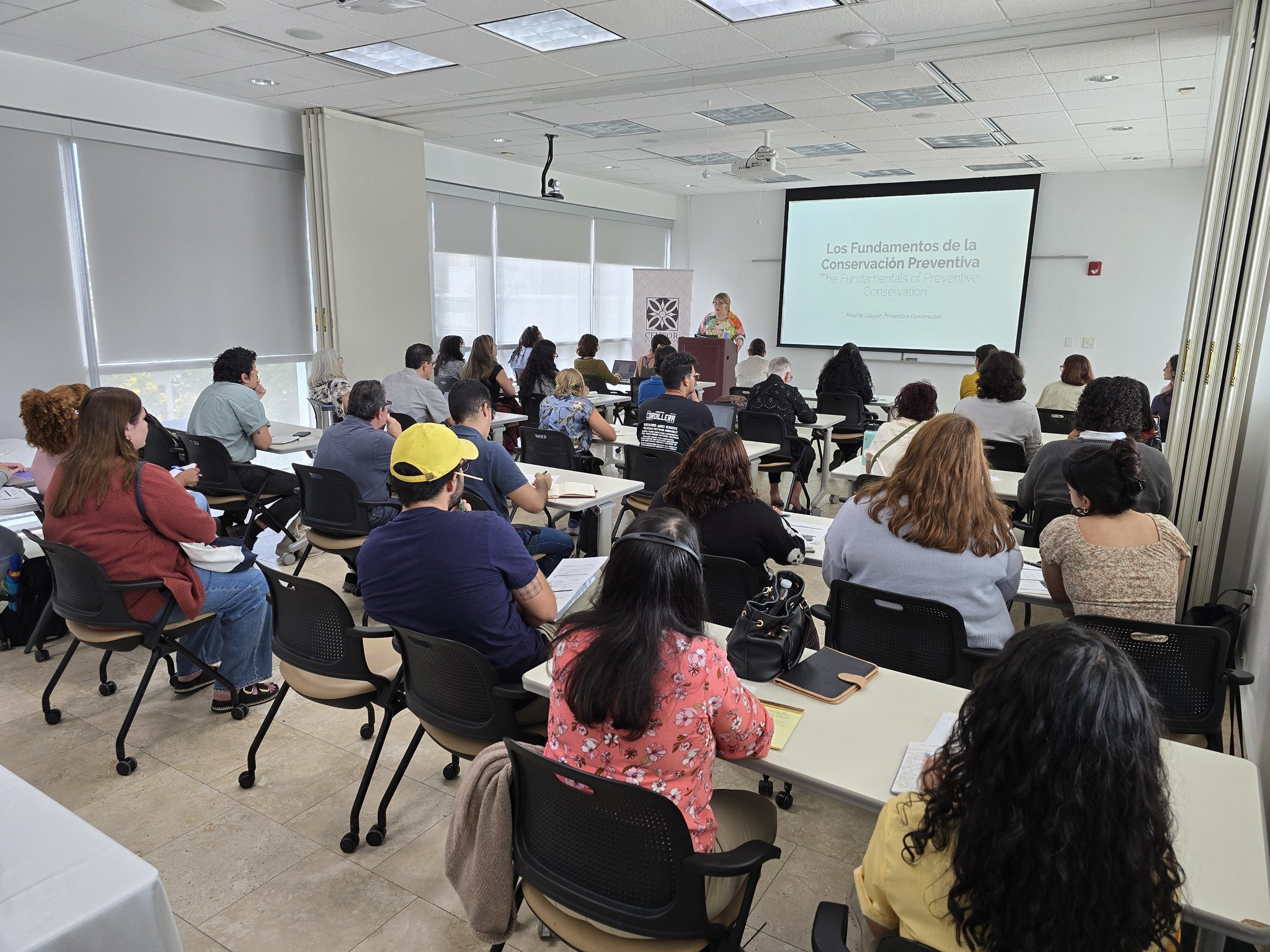
Introducing CCAHA's New Toolkit: Assessing the Preservation Needs of Paper-Based Collections
For many organizations caring for paper-based collections, setting preservation priorities can feel overwhelming. Faced with diverse materials, limited time, staff, and budgets, organizations often struggle to determine where to begin or which actions will have the greatest impact.
To help address these challenges, CCAHA is proud to launch Assessing the Preservation Needs of Paper-Based Collections, a free, fully self-paced toolkit designed to guide individuals and institutions through every step of evaluating and planning for the care of their paper-based holdings. The toolkit was developed in collaboration with the Centro de Conservación y Restauración de Puerto Rico (CENCOR), with support from the National Endowment for the Humanities (NEH), and made possible through the contributions of Maddie Cooper, former Associate Preventive Conservator at CCAHA. Available in both English and Spanish, this adaptable resource offers a practical framework for self-guided preservation assessment and planning. It is especially suited for small and mid-sized organizations, those without dedicated preservation staff, seeking achievable and cost-effective ways to strengthen their preservation practices.
The toolkit builds on two successful hybrid courses offered in 2024 to twelve Puerto Rican collecting organizations. Developed collaboratively by CCAHA and CENCOR, the courses provided hands-on training in assessment techniques tailored to the specific challenges these organizations face.

Practical, Accessible Guidance
Structured around modules covering planning, the building, the environment, storage, collections care, and emergency management, the toolkit provides a straightforward, step-by-step process for identifying risks and prioritizing preservation actions. While its focus is paper-based collections—including documents, books, artwork on paper, and photographs—many topics apply to other types of cultural heritage materials found in museums, libraries, archives, and even personal collections.
Assessment forms, priority-setting frameworks, and guidance on when to seek professional conservation treatment make this a truly self-contained resource for institutions with limited staff and budgets. The toolkit emphasizes achievable strategies that organizations can implement at their own pace to achieve meaningful and lasting improvements in collections care.
Collaboration and Commitment
CCAHA partnered closely with CENCOR throughout the development of the toolkit, combining expertise and practical experience from both organizations to ensure it is relevant and adaptable across diverse cultural and institutional contexts. “With the goal of making preservation knowledge more widely accessible, the toolkit is available in English and Spanish and includes useful resources for tropical and humid climates,” CENCOR Project Coordinator Sofía Feliciano Centeno.
Like our Preservation Glossary, this resource embodies CCAHA's commitment to making preservation knowledge accessible to all. "Whether you’re a small historical society with volunteer staff or a community archive just getting started, this toolkit is designed to meet you where you are," said CCAHA Director of Preservation Services Dyani Feige. "Our goal is to give organizations the confidence and knowledge to take meaningful steps toward better collections care."
Explore the Toolkit: Assessing the Preservation Needs of Paper-Based Collections.
Images: Maddie Cooper, former Associate Preventive Conservator at CCAHA, conducts an archival needs assessment at Col Arte Musica in Puerto Rico; 2024 preventive conservation class.
While the NEH grant underwriting this toolkit and our other capacity-building work was terminated in April, CCAHA and CENCOR remain committed to keeping these resources freely available. Your support helps us continue to empower organizations to protect our cultural heritage. If you value the work that we do to give organizations and communities the tools and knowledge necessary to save our shared cultural heritage, please consider donating to CCAHA. Even a small amount will have an impact.